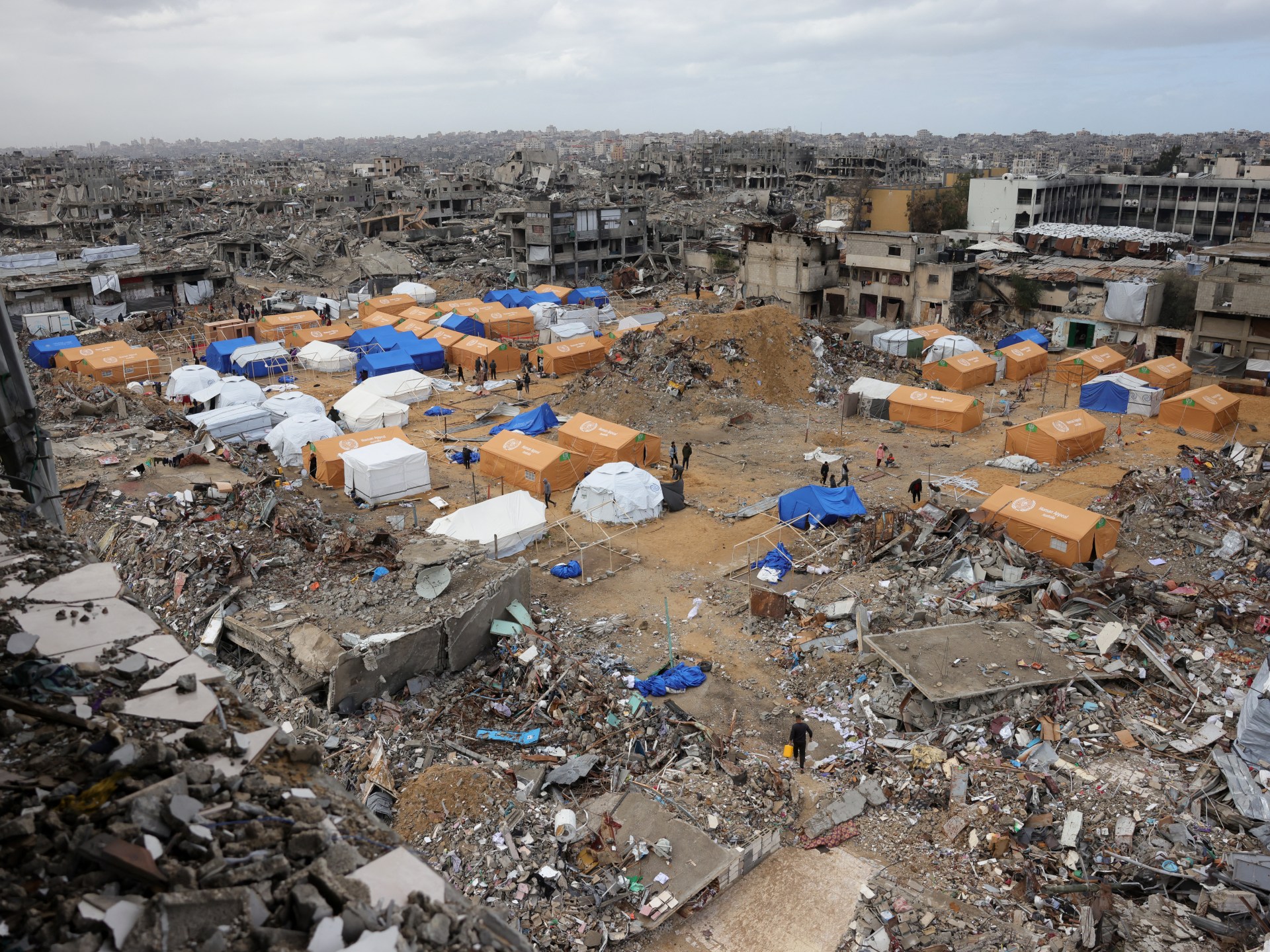Physical Address
304 North Cardinal St.
Dorchester Center, MA 02124
Physical Address
304 North Cardinal St.
Dorchester Center, MA 02124

Residents say the garbage that floods the streets of Gaza City creates new health risks.
The displaced Palestinians who returned to northern Gaza have found that the cities that are saving once were reduced to toxic arid lands, according to residents and relief agencies.
The residents of Gaza, who were shocked by the level of destruction, were shocked by the residents of Gaza to take action on the sewage crisis in a building in the largest city in the pocket, according to Al -Jazeera on Monday.
A scene of destruction has met with those who hope to rebuild their lives in the northern tributaries of the pocket, which is the most focused Israeli military axis during the war. The risks posed by damaged buildings are matched through lost public services and streets filled with garbage piles.
The ceasefire deal last month pushed the rush by the displaced to return to the north. However, Gaza City is still without running water or a reliable force.
Tess Ingram of the United Nations Children’s Fund (UNICEF) said cities lack basic services such as water and health care.
And she said from Gaza City: “They shocked what they returned to,” she said from Gaza City.
They hoped that their homes, neighborhoods, and societies would have survived. And while they return here and realize that this is not the case, the hope you hold for for 15 months. “
Families dating back to the north #gaza I was shocked by the scale of destruction.
Tess ostram from UNICEF, located on Earth and the tremendous challenges people face. pic.twitter.com/iryrn9asnm
– Unicef Mena – UNICEF Middle East and North Africa (@unicefmena) February 9, 2025
Hills of toxic garbage garbage from the central areas of the city, including the business center, amplify the spread of the disease.
Amin Al -Olaya, a nurse at Amily Hospital, said: “The accumulation of waste in the vicinity of hospitals leads to serious health risks, especially the outbreak of diseases and the environment.”
“It is very dangerous,” Ahmed Nasser from the resident of Al -Jazeera told Al -Jazeera. “We hope it will be removed as soon as possible.”
“This area has turned into frightening like the inhabited forests,” added Majid Basam, the store owner, added. “It is filled with stray insects and dogs, called it whatever you want. It is a large area of the flesh.”
Heavy rains and strong winds in Gaza City, and the north is getting worse.
With no shelter, some resorted to starting fires inside the collapsed buildings for warmth, according to Hani Mahmoud from Al -Jazeera from Gaza City.
Mahmoud said: “There were three documented cases of people who died under similar buildings that have been collapsed in recent days.”
Hanan Palki from the World Health Organization (World Health Organization) described the suffering of people in the pocket of war as “beyond understanding” and called for accelerating assistance.
She said that the World Health Organization “is ready to expand our response”, but it needs “a systematic and continuous access to the population throughout Gaza, and we need an extent to their restrictions to enter the basic supplies.”
More than half a million Palestinians have returned to northern Gaza since the Israeli army reopened the Netzarim Corridor, which divides Gaza from the north to the south, to travel in late January.
On Sunday, Hamas said that the Israeli forces had withdrawn entirely from the corridor as part of the ongoing ceasefire deal, allowing the Palestinians to cross without fear of military violence for the first time in more than a year.